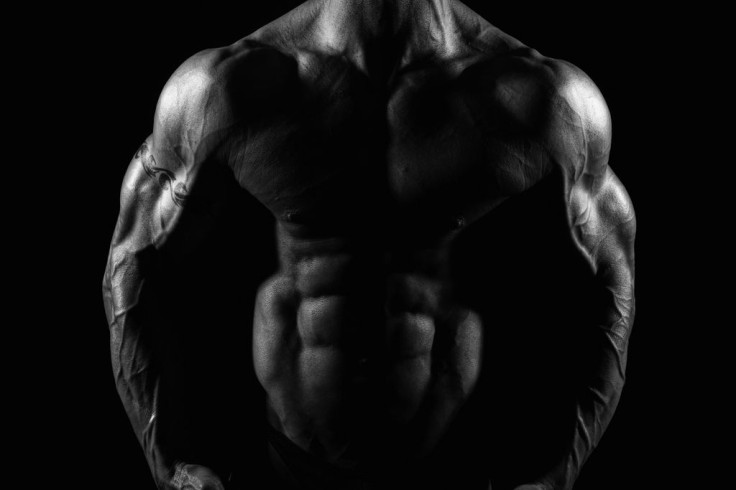Is Bigger Always Better? Super Muscular Appearance Doesn't Mean You're Strong, But It Could Get You More Dates

A recent study has revealed that although we associate muscle mass with strength, on a molecular level, the muscles of lean power athletes, such as track runners, are on average 58 percent stronger than those of bulky body builders. However, while body building alone is not likely to win you a strong man competition, those muscles aren’t completely useless, as research shows muscular men have more active sex lives.
For the study, a team of researchers from Manchester Metropolitan University in England had six power athletes, 12 bodybuilders, and 12 controls complete a series of activities to test their athletic abilities. The bodybuilders were described as individuals who train using the traditional high volume, low intensity weight lifting exercises. The power athletes group was more likely to incorporate cardio and light strength training into their workouts, and this group consisted of mainly football players and competitive runners. The controls were physically active, but they didn't incorporate any formal exercise schedule into their daily routines.
A biopsy of muscle samples taken from the volunteers revealed “irrespective of [muscle] fiber type,” the muscle fibers of power athletes were 58 percent stronger than those of the body builders, suggesting that strength training combined with aerobic exercise is the most effective way to increase strength. The power-generating capacity of body builders was even found to be “no greater” than that of the controls, despite having significantly larger muscle fibers.
Although it may be surprising that mass does not automatically equal strength, a better understanding of the science behind our muscular system helps to explain this paradox. Muscles are bundles of fiber that contract to help you perform in action. The amount of force that a muscle exerts is related to how strong the contraction is, and exercising increases the contraction strength. According to Shape, the constant heavy lifting that the bodybuilders practiced increased the amount of muscle fibers in their body but also simultaneously weakened these fibers. Although the power athletes had fewer fibers, the ones they had were subjected to less stress and therefore made them stronger than the body builders.
Although big muscles may not necessarily be all that strong, however, that doesn’t mean they are completely useless. A 2009 study conducted by UCLA revealed that more muscular men generally had more sexual partners than less muscular counterparts and were twice as likely to have had more than six sexual partners in their lifetime than less muscular men. According to the researchers involved in the study, the reason for this is rooted in our evolutionary instincts for physically fit partners.
"Evolutionary scientists have long maintained that exaggerated secondary sexual characteristics — such as large muscles in men — are cues to genes that increase the viability of offspring or their reproductive success," Martie Haselton, one of the researchers involved in the study explained in a statement, adding that "…women today are still attracted to muscular men, just as their ancestors would have been, because that's how we've evolved."
Source: Meijer JP, Jaspers RT, Rittweger J, et al. Single muscle fibre contractile properties differ between bodybuilders, power athletes and controls. Experimental Physiology. 2015.
Published by Medicaldaily.com



























